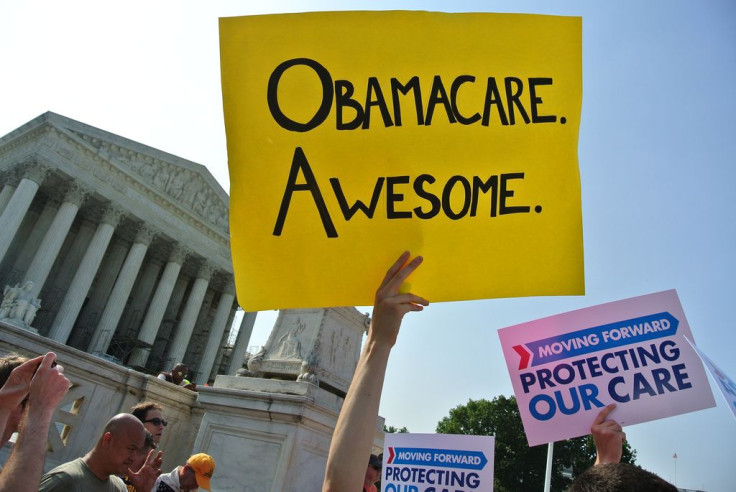Most Of The World Has A Constitutional Right To Health Care, But Not The US, Even With Obamacare On The Way

One would think that in this day and age, health care was a mandatory right in all countries. However, a new study indicates that citizens of the United States, and many other countries, lack firm constitutional rights to healthcare.
However, more than half of the world's countries have some degree of a guaranteed right to public health and medical care for their citizens, written into their national constitutions.
The study found that 73 United Nations member countries guaranteed the right to medical care services, while 27 countries aspired to protect this right in 2011.
With all the legislation that the United States is seeing regarding the Affordable Care Act — or Obamcare — as well as its status as one of the most affluent countries, one would think the United States could guarantee its citizens health care rights.
When it came to guaranteeing public health, global performance was even poorer: only 14 percent of countries assured this right, and 11 percent aspired to it.
Furthermore, free medical care was constitutionally protected in just nine percent of the countries. Thirteen percent of the constitutions guaranteed children's right to health or medical care, while a mere six percent of countries guaranteed it for the disabled and five percent for the elderly and the socioeconomically disadvantaged.
The United States is one of 86 countries whose constitutions do not guarantee their citizens any kind of health protection. This is particularly true in the case of countries with older constitutions that have not been meaningfully amended since constitutional rights to health became common practice. The United States Constitution was written in 1776, and all major amendments to it, found in the Bill of Rights, are all pertinent, but none really regard health care.
"The U.S. Supreme Court's decision in June 2012 to uphold the Affordable Care Act was based on viewing the legislation as legal," said Jody Heymann, M.D., Ph.D., senior author of this study. "While the acknowledgement that Congress can provide for health is a step in the right direction, it is a long way from a guaranteed constitutional right to public health and medical care. The U.S., unfortunately, lags far behind many of the world's nations."
"The global recognition of a right to health is a powerful step in guaranteeing health as a fundamental human right for all people, but it is important to ensure this moral right moves from the philosophical to the practical. That will require a kind of transparency and accountability where the public can readily access information on which countries are implementing these guarantees," she continued.
Nevertheless, there is a clear trend toward greater constitutional protection of health rights. Seventy-five percent of the constitutions introduced in the 1980s, and 94 percent of those adopted in the 1990s, protected at least one health care-related right. Only one of the 33 constitutions adopted between 2000 and 2011 did not protect at least one health right.
Thanks to this new finding about rights to health care, perhaps more can be done to give and protect global public health. Next steps toward this may include regular monitoring of the national protection of health rights, analyses of the impact of health rights on health outcomes in their particular countries, and assessment of which specific formulations of health care rights have the greatest and most significant impact on health.
Source: Heymann J, Cassola A, Raub A, Mishra L. Constitutional rights to health, public health and medical care: The status of health protections in 191 countries. Global Public Health. 2013.
Published by Medicaldaily.com



























